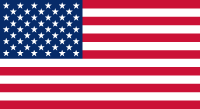
It’s no secret that not all pool cues are created equal. Sure, perhaps when you’re just beginning to learn the game of billiards, having one of the best pool cues available isn’t completely necessary, but once you start to get more competitive and skilled at the game, you’ll no doubt want to be bringing a quality cue to the table.
With that being said, what are the best pool cues? It falls on you to determine what differentiates the best from the rest, and there are a number of factors that go into finding that answer. Thankfully, we’ve got them all right here for you in this easy-to-follow guide to finding the best pool cues around.
Why Do You Need a Good Pool Cue?
To the untrained hand, most pool cues are bound to feel unremarkably similar, but as with most experiences, the more time you spend at the pool table, the more you’ll start to feel the difference between a high-quality cue and everything beneath it. That’s why all of the players in the professional game invest considerable sums in their cue of choice.
Still, it’s not all about the cost of your pool cue, though you certainly do get what you pay for in most cases. It’s also crucial that you get a cue that’s the right length and weight for you, has the kind of wrap (or break cue) you’re most comfortable with, and has the type of tip that makes you the most dangerous shot in the pool hall. The design matters too, so any cue that feels right in your hands should be on your list.
In short, you need a good pool cue because having one can unmistakably make you a better pool player. You’re competing at a significant disadvantage if you take any old stick into a match against someone who has made the effort, both in time and in investments, to get themselves their perfect cue.
What Are the Best Pool Cues?
Determining what the best pool cues are is something of a subjective exercise. Everyone has their preferences, and they often form those preferences primarily through trial and error, but there are certain factors that you can consider beforehand that can help you pick the best cue for you.
Length
Pool cues actually run on a standard in terms of length. A one-piece cue will be 57 inches, while a two-piece will be slightly longer at 58 inches. Still, some circumstances may arise in which you may want to choose one that’s either longer or shorter than that.
If you stand anywhere between 5’8” and 6’5”, you should be in the clear with a standard one-or-two-piece cue. If you’re taller than 6’5”, then go for a 61-inch cue, and if you’re shorter than 5’8”, consider either a 48-inch or 52-inch.
Weight
The weight of any given pool cue won’t vary widely from others, but there is more of a range with cue weights than there is with their lengths. That range is between 17 and 21 ounces. Most players will prefer their cue to weigh somewhere that’s right in the middle, but if you’re above or below average in size, you may want to adjust accordingly, just as you would with cue length.
Wrap
The end of the cue that you grip when shooting is called the wrap. Wraps are made from leather or linen, though it’s possible for the cue to have no wrap, meaning you’ll be gripping either wood or fiberglass. The best wrap for you will be the one that you feel the most comfortable shooting with, which means it’ll take some trial and error to figure it out.
Tip
The tip of your pool cue is a crucial element. It’s the part of the cue that makes direct contact with the ball, and it can come in one of three styles: soft, medium, or hard. The softer the tip, the more spin you can put on the ball, but the harder the tip, the more powerful your shot can be. Medium is the most popular option, but it’s on you to determine what works best for your playstyle.
What Is the Best Brand of Pool Cues?
There are many brands of pool cues available, and many of them offer great quality across a range of budgets, but simply looking up “what are the best pool cues brands” may not be the best course of action. Cues used by professionals can be jaw-droppingly expensive. You may be looking for that level of a cue, of course, but in case you’re interested in the more casual player’s best options, we’ve listed them both below.
Best Cues for the Average Player
If you’re a lover of billiards but not ready to dive into super high-end, luxe-edition, premium-quality cue brands just yet, there are still plenty of great options available to you.
Most cues from these companies will typically run you anywhere between $150 and $400, though they can possibly cost even more. Remember, it’s not always about how much a cue costs, though there is often a distinctive difference in quality when you go below a certain price range.
Best Cues for Professional Players
You don’t need to be a pro to benefit from making a significant investment in a high-end cue. There’s a reason why the best of the best are particularly discerning when it comes to the cue they choose to use.
Keep in mind that some pool cue brands — including some of the ones listed as better for casual players in the previous section — will offer higher-end options that cost far more than their average cues. Conversely, the brands just above also offer cues in a range of prices, some of which dip down into more casual-friendly ranges.
Your Pool Cue Can Enhance Your Game
Investing in a quality pool cue can make a big difference, but it’s important that you don’t focus solely on the price of the cue when choosing the best option for you. Try out as many different cues as you can to get an idea of the different features you prefer in order to make an informed decision when it’s time to commit to a new cue.








 Shop now. Pay over time with affirm
Shop now. Pay over time with affirm